
A COMMITMENT TO CLARITY & SUPPORT THROUGHOUT YOUR PROBATE PROCESS
Overwhelmed by Executor Responsibilities?
Expert Pennsylvania Probate Support to Guide You Every Step
If you've been named as an executor or personal representative in Pennsylvania, you're facing one of life's most significant legal responsibilities. Between court deadlines, property decisions, family dynamics, and the fear of making costly mistakes, it's normal to feel overwhelmed—especially while grieving.
You don't have to navigate this alone. PA Probate Help provides specialized executor services throughout Montgomery, Philadelphia, Bucks, Delaware, and Chester counties. Led by Certified Probate Real Estate Specialist Joe Thomas, we guide you through every aspect of estate administration with clarity, compassion, and decades of Pennsylvania probate expertise.
You're Not Alone: Common Executor Challenges We Solve
Being an executor means you're legally responsible for settling an entire estate - managing assets, paying debts, filing taxes, and distributing inheritances - all under strict court oversight and often during one of the most emotionally difficult times of your life.
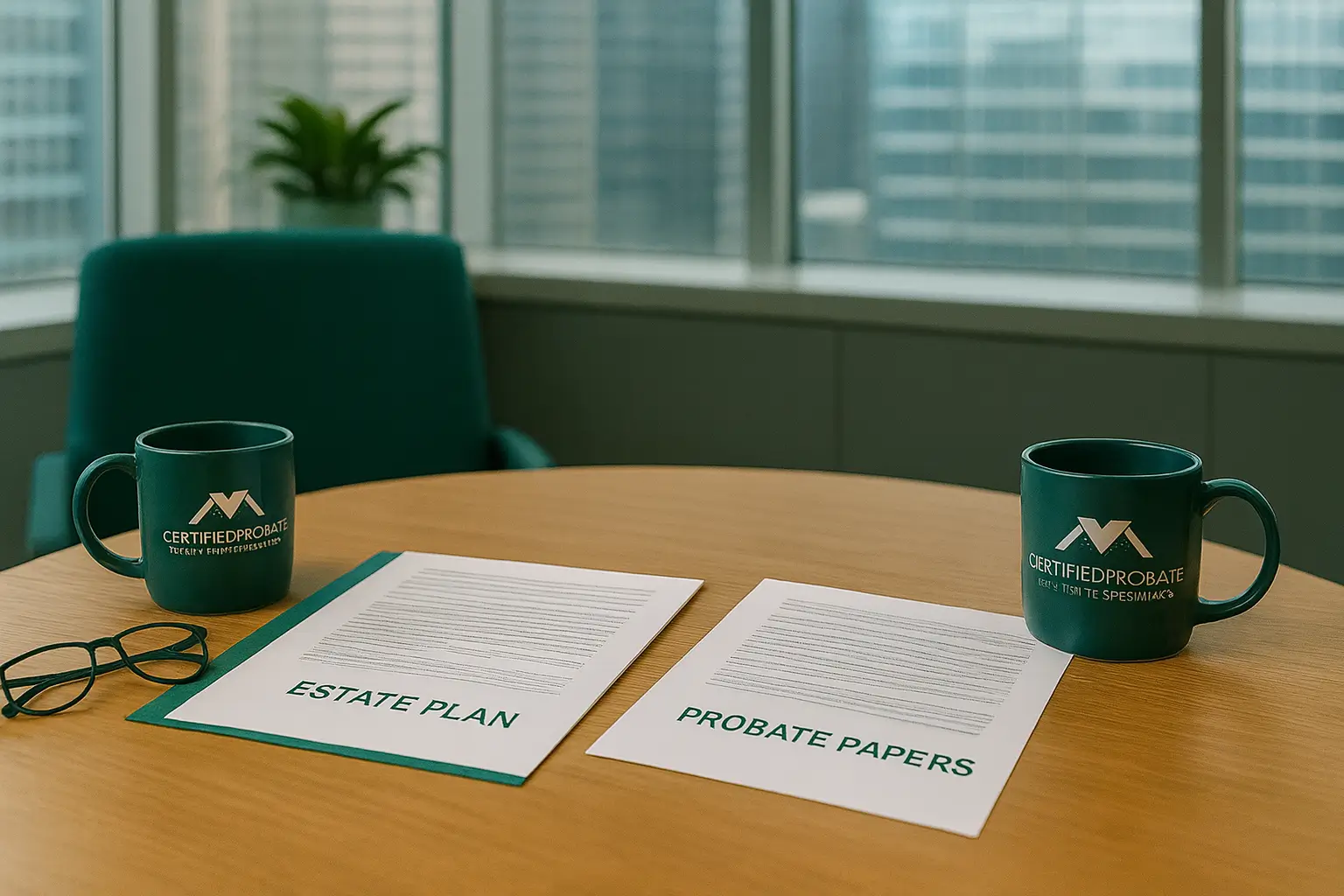
Legal Uncertainty: Confusion about Pennsylvania probate laws and requirements
Time Pressure: Court deadlines while balancing work and family obligations
Financial Liability: Fear of personal liability for executor mistakes
Paperwork Overload: Complex court filings and documentation requirements
Property Decisions: Uncertainty about selling or distributing real estate
Family Conflicts: Navigating disagreements among beneficiaries
Emotional Stress: Handling a loved one's affairs while grieving
These concerns are valid. Pennsylvania executors face real legal liability for failing to perform duties properly. That's exactly why
PA Probate Help exists - to provide expert guidance that helps you fulfill your responsibilities with confidence and peace of mind.
Understanding Your Role as Pennsylvania Executor

Who Handles Probate?
When someone dies with a will in Pennsylvania, the executor named in that document manages the estate under supervision of the county's Register of Wills and Orphans' Court. Without a will, the court appoints an administrator to handle settlement according to state intestacy laws.
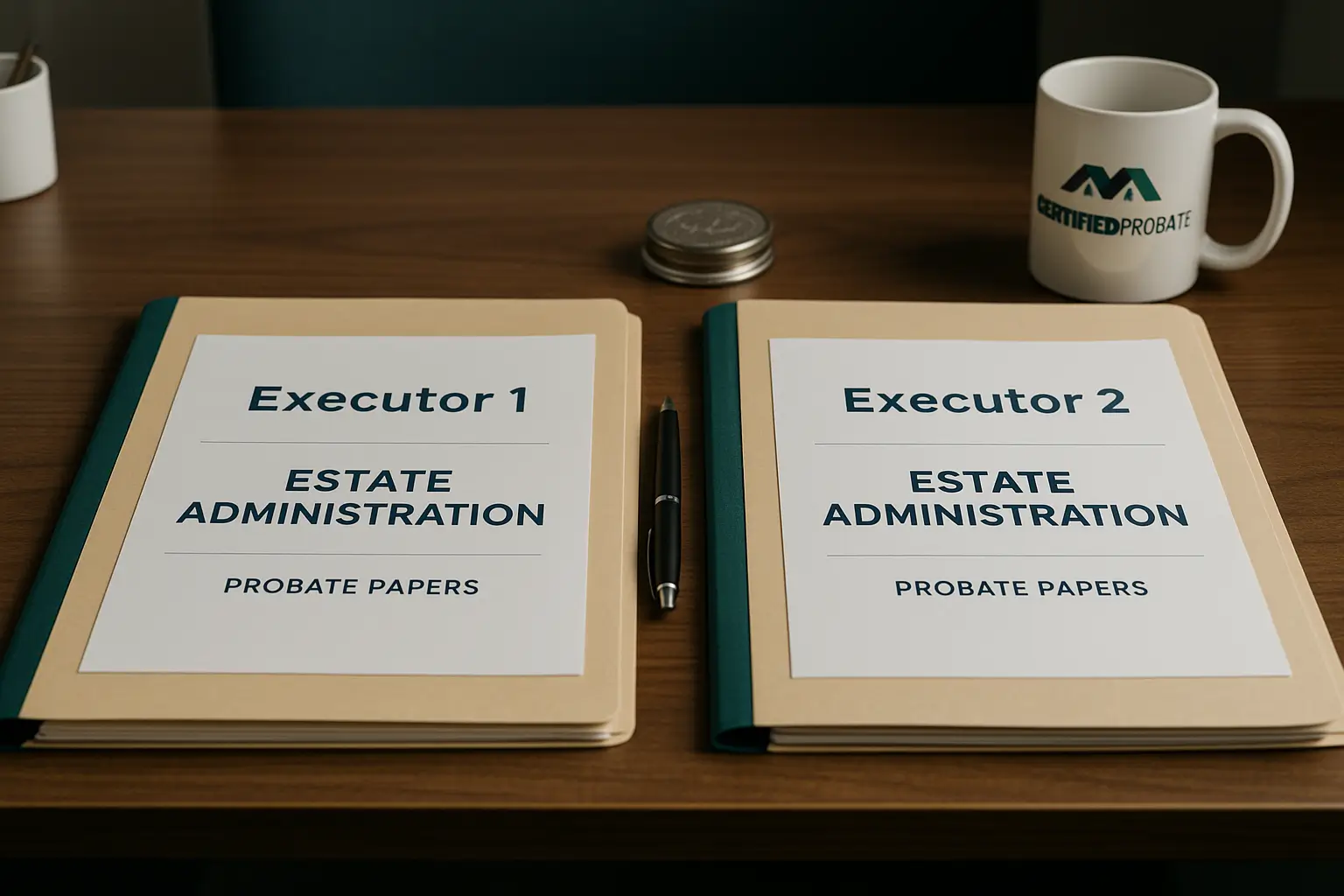
Can There Be Multiple Executors?
Yes, Pennsylvania allows co-executors. While this distributes the workload, it requires both parties to agree on every decision, which can cause delays. Clear communication and defined responsibilities are essential for co-executors.
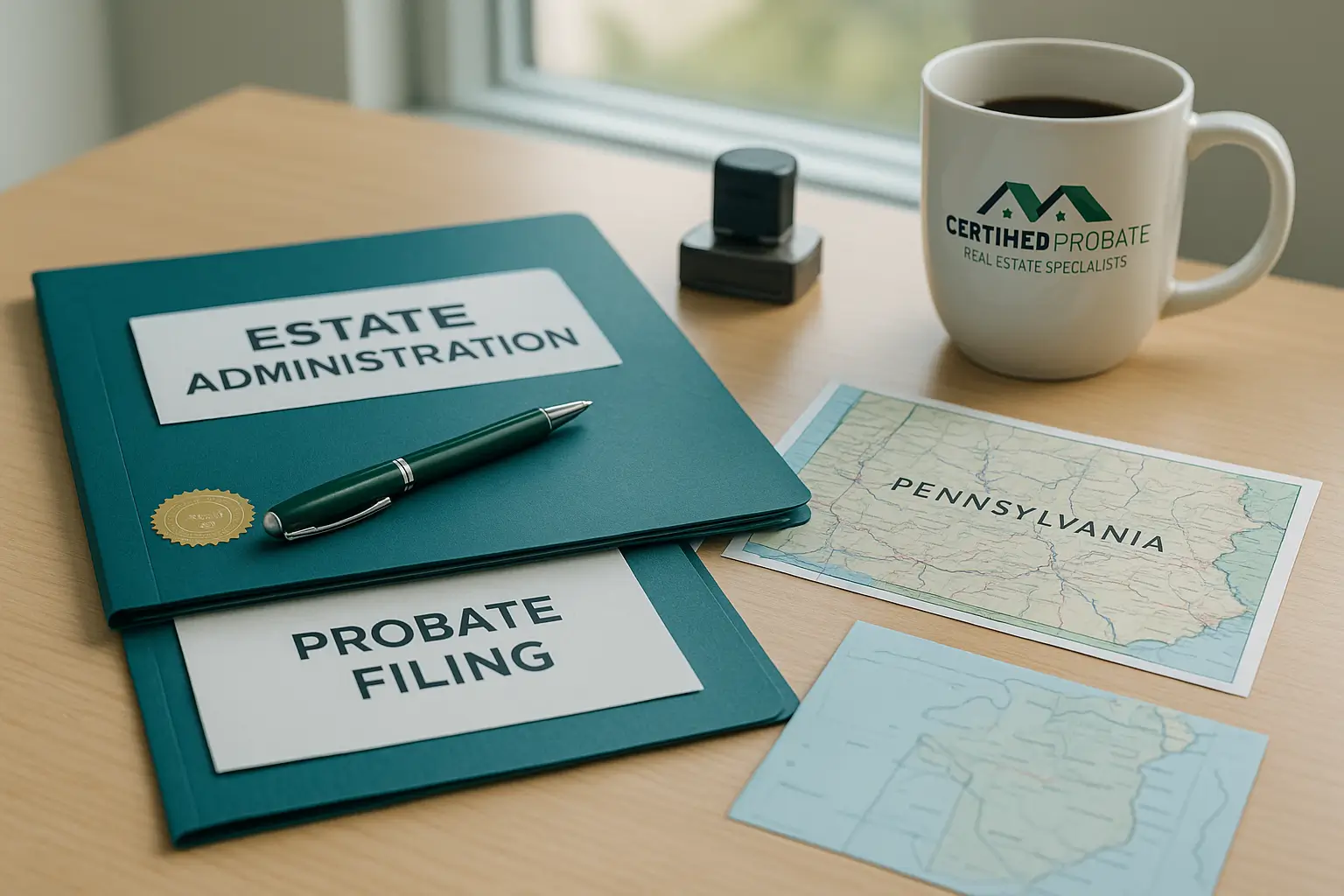
Out-of-State Executors
Pennsylvania doesn't strictly require executors to be state residents, but local presence makes the process significantly easier. Out-of-state executors face challenges with court appearances, property management, and coordinating local professionals.
Your Primary Responsibilities as Pennsylvania Personal Representative/Executor
Pennsylvania executors must handle numerous complex tasks. Here's what you're responsible for:
Estate Asset Management
Identifying and inventorying all estate assets including real estate, bank accounts, investments, vehicles, personal property, and business interests
Determining which assets fall under probate versus those passing directly to beneficiaries (life insurance, retirement accounts with named beneficiaries, jointly-owned property with survivorship rights)
Appraising or valuing estate assets to establish fair market value for tax purposes and equitable distribution
Real estate often requires professional appraisal, especially if property will be sold
Financial Administration
Opening an estate checking account to manage estate funds separately from personal finances (required by Pennsylvania law)
Receiving payments due to the estate including final paychecks, tax refunds, insurance proceeds, and outstanding debts owed to the deceased
Paying outstanding debts and valid claims after proper investigation and court approval
Managing ongoing expenses including mortgage payments, property taxes, insurance, utilities, and maintenance costs until assets are distributed
Legal & Tax Obligations
Filing required court documents with the Register of Wills, including petition for probate, inventory, and accounting of all transactions
Giving proper notice to creditors through published advertisements and direct notification as required by Pennsylvania law, then managing the claims process according to statutory timeframes
Handling Pennsylvania inheritance tax returns: According to 20 Pa.C.S. § 3392, inheritance tax returns must be filed within nine months of death. Pennsylvania offers a 5% discount for early payment within three months. Tax rates are 4.5% for direct descendants, 12% for siblings, and 15% for other heirs. [Source: PA Department of Revenue]
Filing federal estate tax returns if the estate exceeds federal threshold amounts (currently $13.61 million for 2024)
Filing the deceased's final income tax returns and any estate income tax returns required during administration
Understanding executor authority: Under 20 Pa.C.S. § 3353, executors receive Letters Testamentary from the Register of Wills, which grant legal authority to act on behalf of the estate. This authority is subject to court oversight and beneficiary rights.
Meeting all statutory deadlines to avoid penalties, interest, and potential personal liability for late filings
Property Distribution
Determining who receives what from the estate according to the will's terms or Pennsylvania intestacy laws
Managing real estate sales when property must be sold to pay debts, taxes, or distribute proceeds among beneficiaries
Distributing assets to beneficiaries only after all debts, taxes, and expenses are paid and you receive court approval
Administrative Tasks
Notifying Social Security, banks, and government agencies of the death to stop benefits and close accounts
Discontinuing utilities and services or transferring them as appropriate
Securing and maintaining property throughout the probate process
Keeping detailed records of every transaction and decision for court review and beneficiary transparency
How PA Probate Help Guides Pennsylvania Executors
You don't need to figure this out alone. Our specialized executor services provide the guidance, resources, and professional network you need to fulfill your responsibilities efficiently and correctly.

Initial Consultation & Assessment
We begin with a comprehensive review of your situation, including the estate's assets, will provisions, family dynamics, and immediate concerns. We help you understand the complete scope of your responsibilities and create a prioritized action plan.
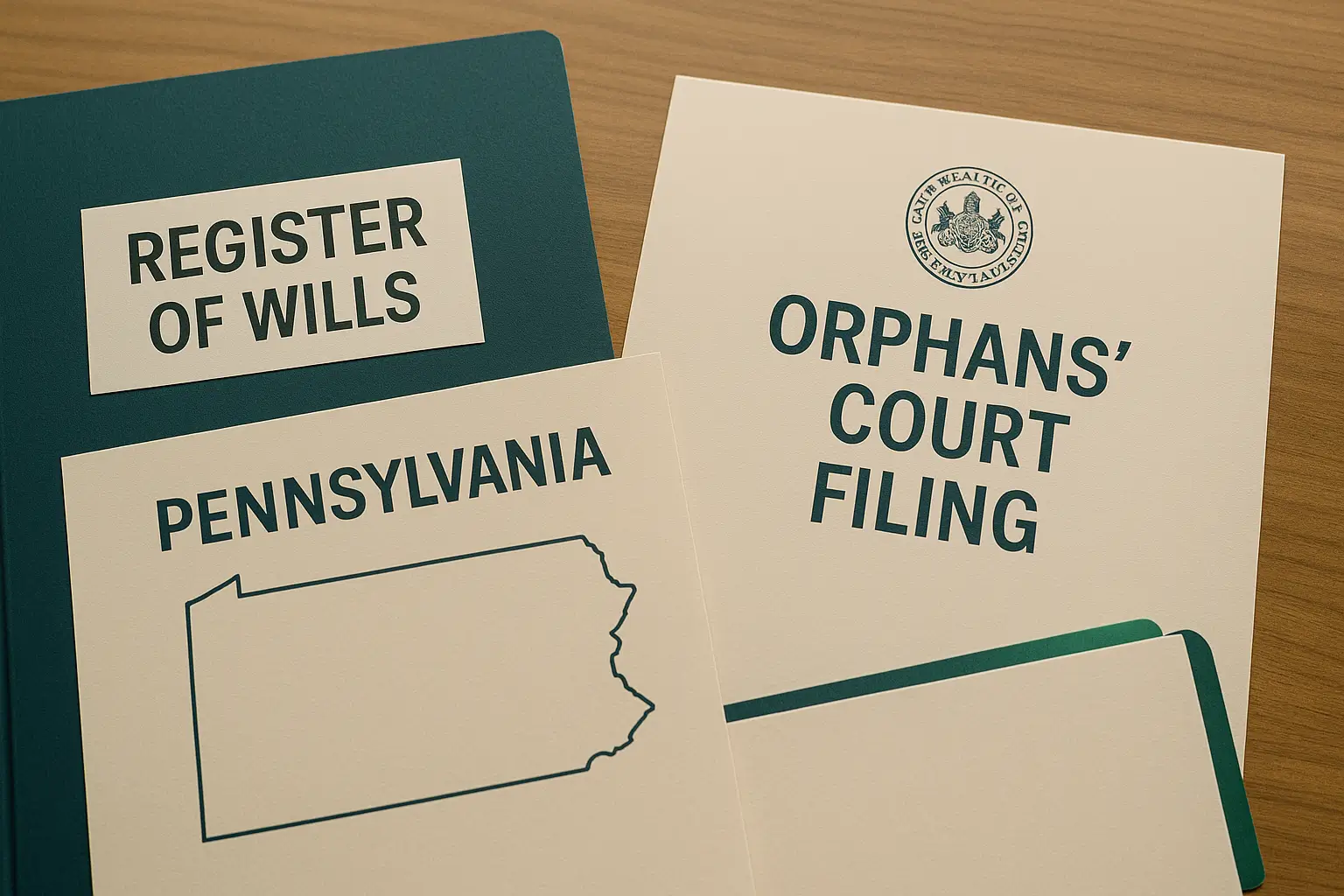
Pennsylvania Probate Process Guidance
We walk you through Pennsylvania's specific probate requirements including filing with the Register of Wills, meeting court deadlines, understanding inheritance tax obligations, and navigating Orphans' Court procedures. Our expertise covers all five counties we serve.
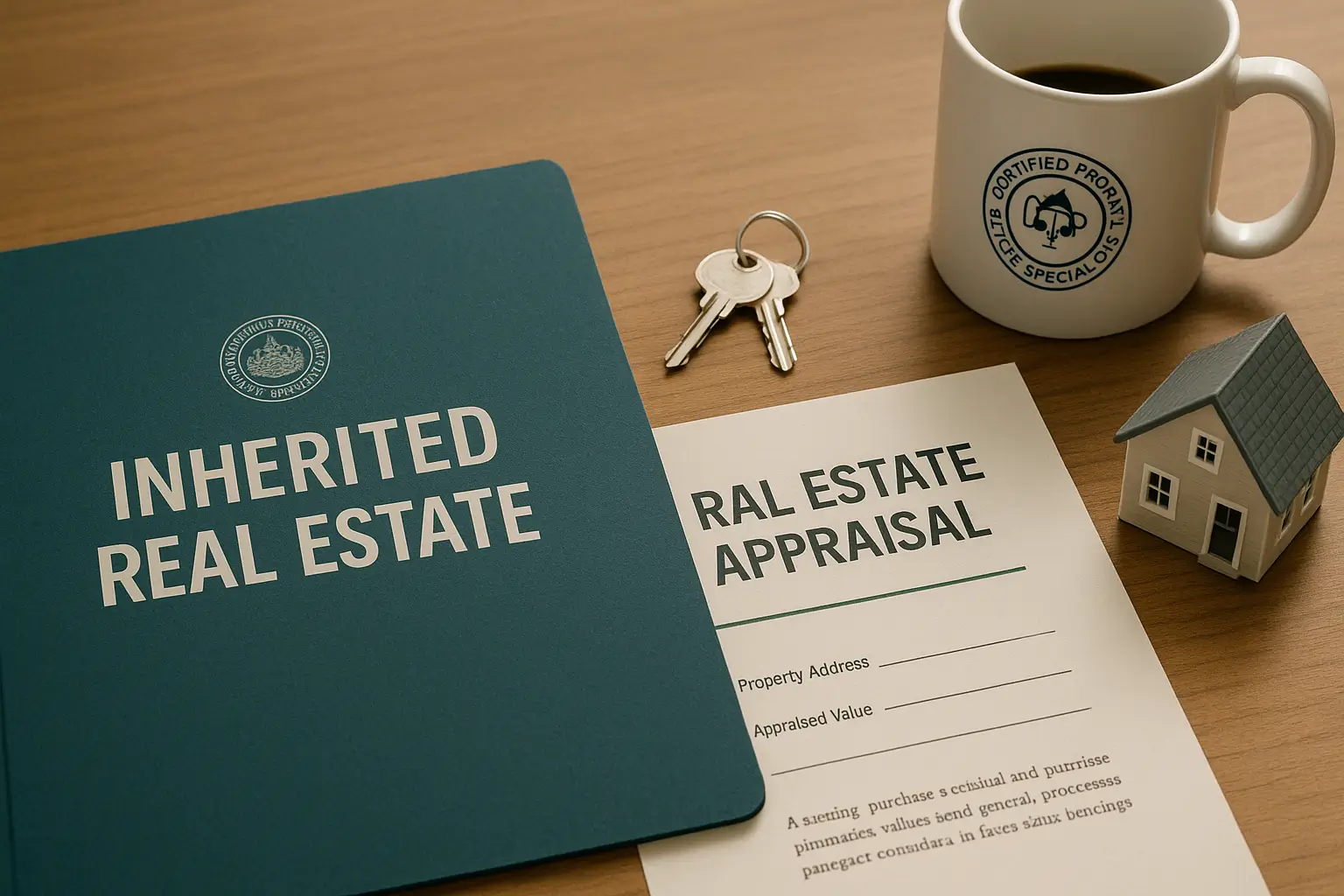
Real Estate & Property Management
As a Certified Probate Real Estate Specialist, Joe Thomas provides expert guidance on handling inherited real estate - determining whether to sell or distribute, obtaining valuations, preparing properties for sale, navigating court approvals, and maximizing value while minimizing costs.

Professional Network Coordination
We've built relationships with trusted Pennsylvania probate attorneys, accountants, appraisers, and estate sale specialists. We help you find the right professionals and coordinate their efforts efficiently so you're not managing multiple vendors alone.

Decision-Making Support
Throughout the process, you'll face difficult decisions with significant financial & legal implications. We provide objective guidance based on decades of experience, helping you weigh options, understand consequences & make informed choices that fulfill your fiduciary duties.
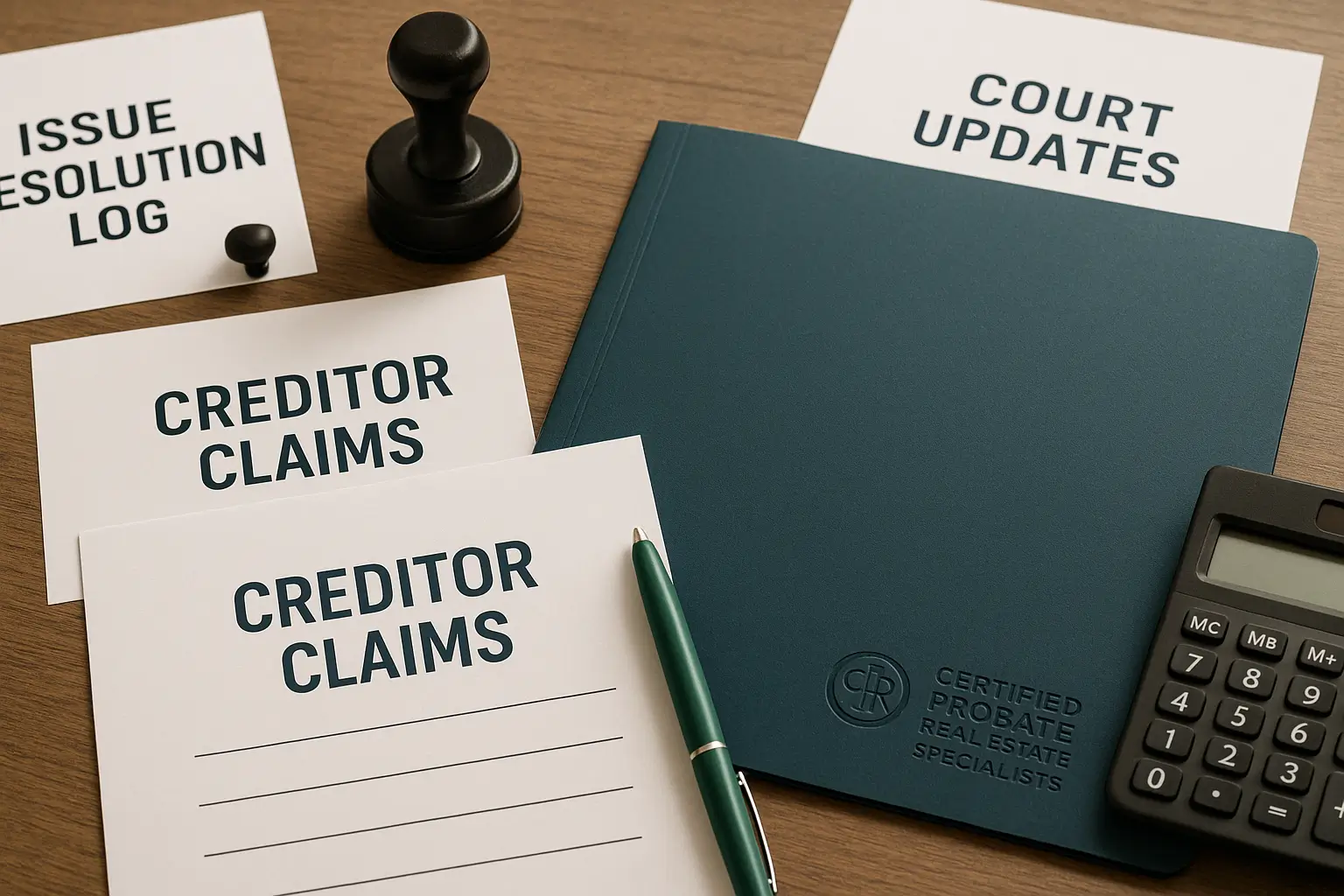
Ongoing Problem-Solving
Unexpected issues always arise during probate. Whether discovering unknown assets, handling creditor claims, dealing with property damage, or managing beneficiary objections, we provide practical solutions based on what actually works in Pennsylvania probate cases.
Common Personal Representative/Executor Mistakes We Help You Avoid
Pennsylvania executors face personal liability for failing to perform duties properly. Here are critical mistakes we help you avoid:

Selling Assets Without Proper Authority
We begin with a comprehensive review of your situation, including the estate's assets, will provisions, family dynamics, and immediate concerns. We help you understand the complete scope of your responsibilities and create a prioritized action plan.

Mismanaging Estate Assets
Executors have a fiduciary duty to preserve and protect estate value. We help you make prudent decisions about investments, property maintenance, and asset management.

Failing to Collect Money Due
From final paychecks to insurance proceeds, estates often have receivables that must be collected. We help you identify and pursue all amounts owed.

Overpaying or Underpaying Creditors
Pennsylvania has specific rules about creditor claims priority and payment. We guide you through the proper process to protect the estate and beneficiaries.

Missing Tax Deadlines
Late Pennsylvania inheritance tax filings result in penalties and interest. We help you meet all tax deadlines and take advantage of early payment discounts.

Poor Record-Keeping
Pennsylvania courts require detailed accounting of all executor actions. We help you maintain proper documentation to satisfy court requirements and protect yourself from beneficiary challenges.
Pennsylvania Probate Timeline: What to Expect
Average Timeline for Estate Administration in Pennsylvania

MONTH 0-1:
INITIAL FILING
File will with Register of Wills
Obtain Letters Testamentary
Notify beneficiaries and creditors
Gather death certificates and documentation
Average Duration: 2-4 weeks (Can take longer if documents are incomplete)

MONTH 1-3:
ASSET INVENTORY & EARLY TAX PAYMENT
Identify and value all estate assets
Open estate checking account
Appraise real estate and valuables
Pay estimated inheritance tax for 5% discount (Deadline: 3 months from death)
Average Duration: 8-12 weeks

MONTH 3-6:
CLAIMS PERIOD
Creditor claims period (PA law allows up to 1 year from death)
Investigate and pay valid debts
Begin property sales if needed
Continue asset documentation
Average Duration: 12-16 weeks
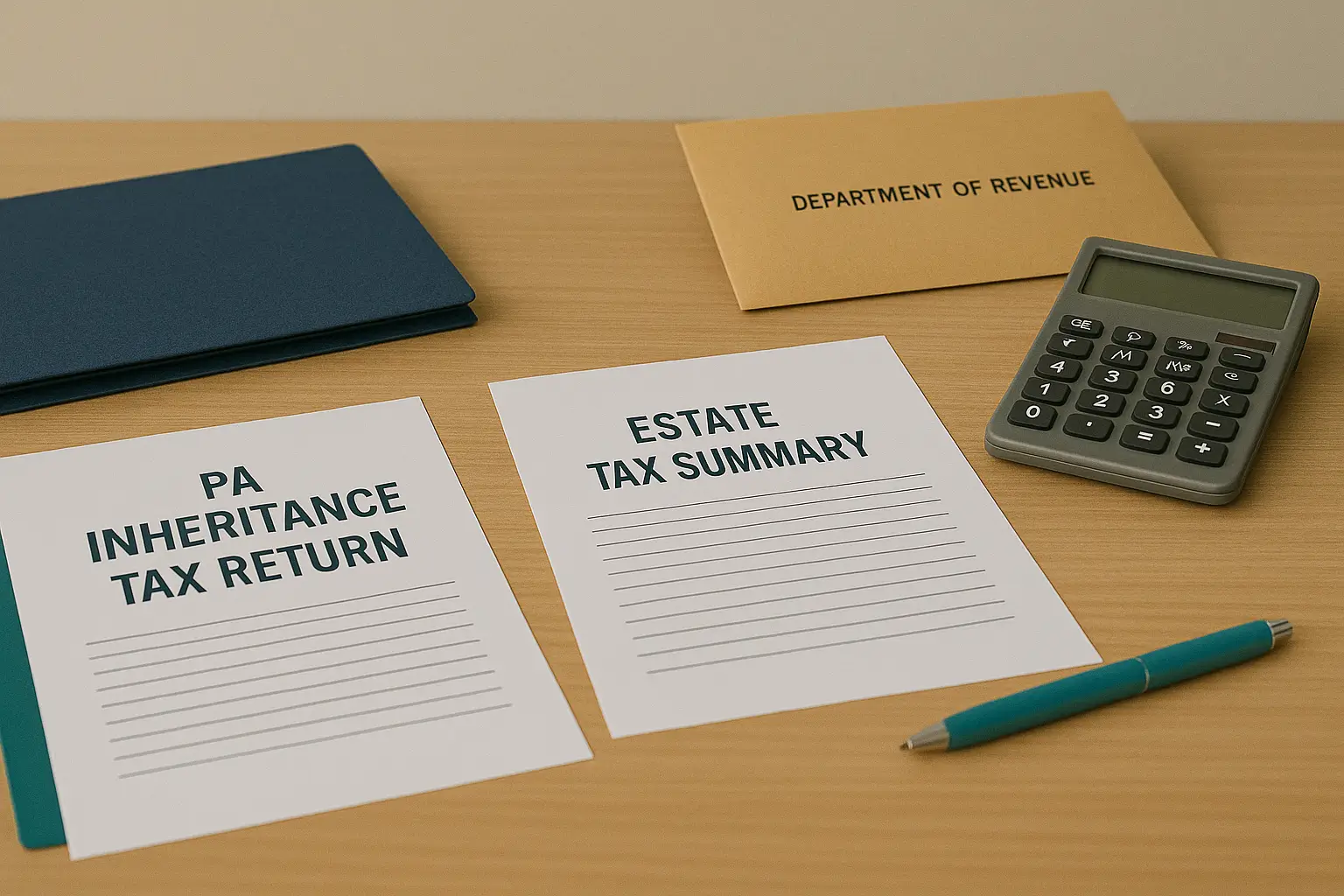
MONTH 6-9:
TAX FILING & COMPLIANCE
File decedent's final income tax returns
File PA inheritance tax return (Deadline: 9 months from death)
File federal estate tax return (if required)
Obtain tax clearances from PA Dept of Revenue
Average Duration: 8-12 weeks
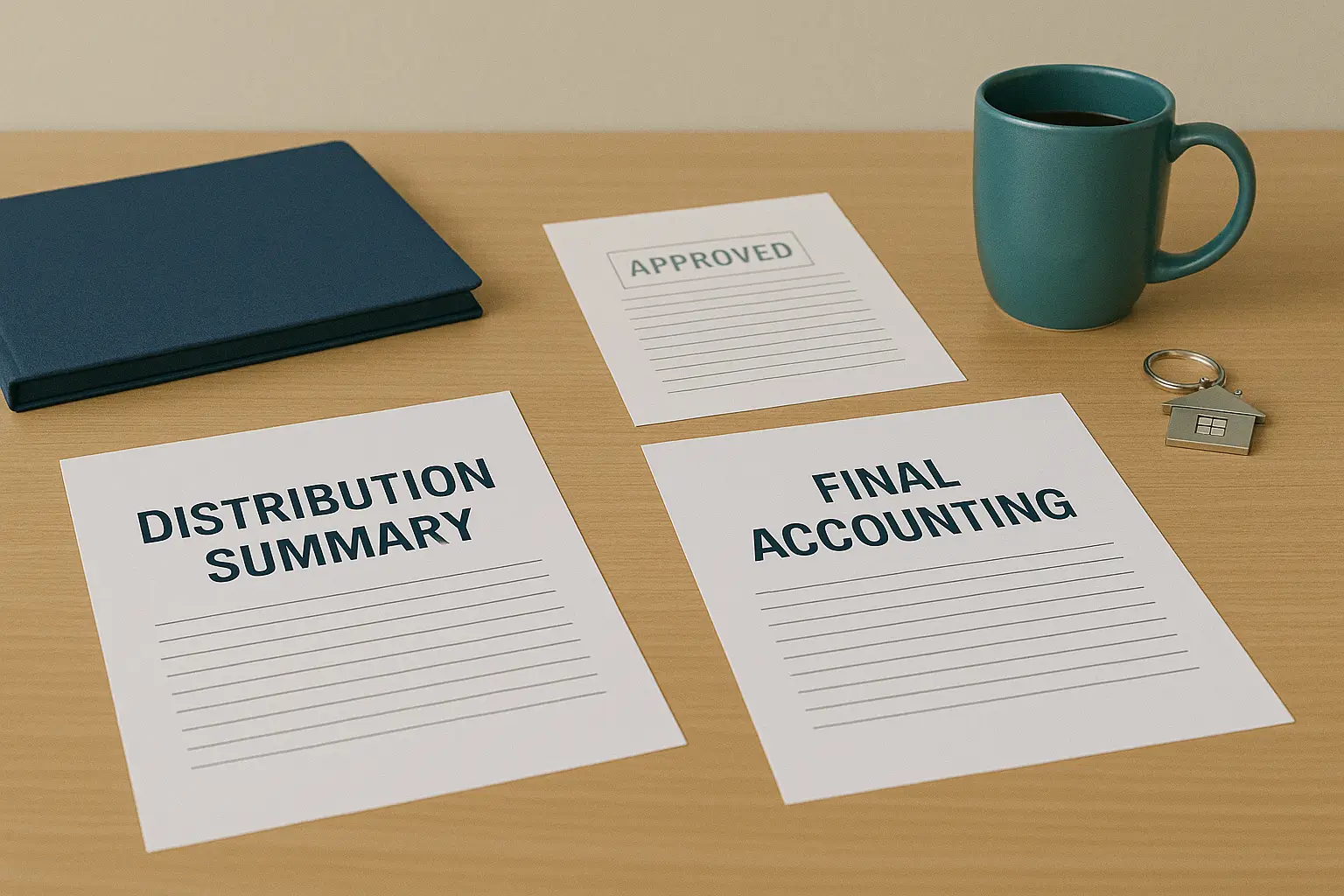
MONTH 9-12:
FINAL DISTRIBUTION
Prepare final accounting for court
Obtain court approval or beneficiary releases
Distribute remaining assets to beneficiaries
Close estate bank account
File final documentation with Register of Wills
Average Duration: 12-16 weeks
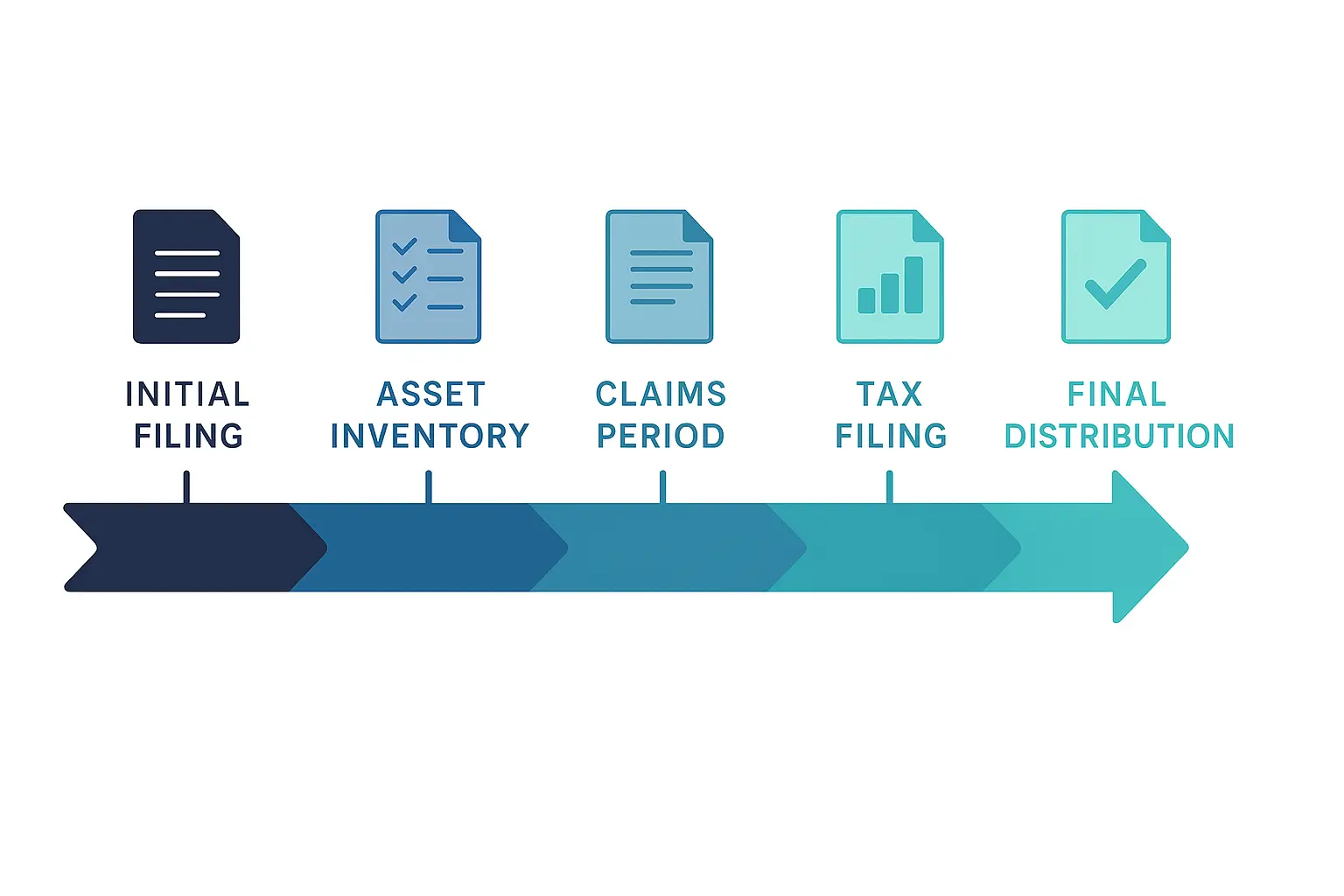
TOTAL AVERAGE TIMELINE SECTION
Simple Estate: 9-12 months
Moderate Estate: 12-18 months
Complex Estate: 18-24+ months
Definition and Duties of the Personal Representative/Executor
Who is legally responsible for handling probate?
When someone dies with a will, the personal representative or executor they name will be responsible for handling probate under the control of the state’s probate court, in most cases.
When there is no will, the court will appoint an administrator who manages the estate and probate based on the state’s probate laws.
In most states, the probate court maintains a great deal of oversight over the executor or administrator’s actions and requires permission to do certain activities like selling property.
Can there be more than one personal representative?
Serving as a personal representative is a major responsibility and requires a great deal of time. It is possible for someone to name more than one person to act as executor of the estate. This can come with downsides as the co-executors must act together and agree on everything. This can be inconvenient and cause delays.
Is it required for the personal representative to live in the decedent’s state?
Each state has its own laws regarding personal representatives. In most states, it isn’t strictly necessary for the executor to live in the decedent’s state but it certainly makes the process easier and faster.
What are the main duties of a personal representative of an estate?
The executor has many responsibilities during probate. The personal representative’s primary duties include:
➡️ Identifying and creating an inventory of the assets of the estate
➡️ Determining which, if any, assets fall under probate
➡️ Receiving any payments due to the estate
➡️ Opening an estate checking account
➡️ Appraising or valuing estate assets
➡️ Determining who will receive what from the estate
➡️ Giving notice to potential creditors
➡️ Investigating claims against the estate
➡️ Paying outstanding debts and claims
➡️ Paying expenses to administer the estate
➡️ Handling paperwork which includes notifying Social Security of the death, court documents, and discontinuing utilities
➡️ Distributing property and assets to beneficiaries
➡️ Filing final taxes
If I am named as the personal representative, do I have to accept?
Being an executor is a major job. If you are named an executor, you do not have to accept. If you agree to serve as the personal representative, you can also resign later if the job is too difficult. The alternate person named in the will can be appointed by the probate court if you refuse the job or the probate court can appoint someone else.
Are personal representatives usually paid?
There is no requirement that the executor be paid, but most receive compensation for the work they do. Personal expenses are always paid and the representative usually receives a fee of around 2% of the estate’s total value. In some states, this is mandated by law. The fee usually gets smaller as the estate’s value grows.
Any funds paid to the executor must be approved by the probate court. In some circumstances, additional fees can be awarded.
What happens if the personal representative fails to perform their legal duties?
One of the reasons many people refuse to be an executor is the legal liability they face. An administrator or executor who does not perform their duties can face personal liability for any damages they cause.
There are many circumstances in which an executor can be liable, such as selling assets without authority, mismanaging assets, failing to collect money due the estate, overpaying creditors, failing to file taxes on time, or distributing assets to the wrong beneficiaries.
Any of these errors (and others) can cause the personal representative to face out-of-pocket costs.
Who can or can't be a personal representative of an estate?
As a general rule, anyone can be an executor if they are over 18. Some states bar felons from serving as executors. There may also be limits on out-of-state personal representatives who may need to be a primary beneficiary or obtain a bond.
If the court needs to appoint a personal representative or an administrator, they typically choose from this list in the following order of priority:
➡️ The person named as the personal representative in the will
➡️ A surviving spouse who is a beneficiary
➡️ Other beneficiaries
➡️ Surviving spouse who is not a beneficiary
➡️ Other heirs
➡️ Someone chosen by a creditor and approved by a probate judge
Why Pennsylvania Executors Choose PA Probate Help

Specialized Probate Expertise
Joe Thomas holds the Certified Probate Real Estate Specialist (CPRES) designation, representing advanced training specifically in probate property transactions and executor support. You're working with someone who understands the unique challenges of estate administration.

Pennsylvania-Focused Experience
We exclusively serve Pennsylvania executors and understand the specific requirements of Montgomery, Philadelphia, Bucks, Delaware, and Chester counties. From local court procedures to PA inheritance tax rules, we know the details that matter.

Comprehensive Support Network
Beyond our direct services, we've built relationships with trusted Pennsylvania probate attorneys, estate accountants, appraisers, cleanout services, and contractors. You gain access to this entire professional network with coordination handled efficiently.

Executor-First Approach
We understand you're managing this responsibility during a difficult time while balancing other life obligations. Our approach prioritizes reducing your stress and time investment while ensuring nothing falls through the cracks.

Transparent Communication
You'll never wonder what's happening with your estate. We provide clear explanations of requirements, realistic timelines, and honest assessments of challenges. Executors appreciate our straightforward communication style.

Problem-Solving Focus
Estate administration rarely goes exactly as planned. Our value shows most clearly when unexpected issues arise. We've seen virtually every probate complication and know practical solutions that work in Pennsylvania courts.
Complete Executor Support: All Services Under One Roof
Most Pennsylvania executors need help with multiple aspects of estate settlement. Rather than coordinating separate professionals, PA Probate Help provides comprehensive support throughout the entire process.
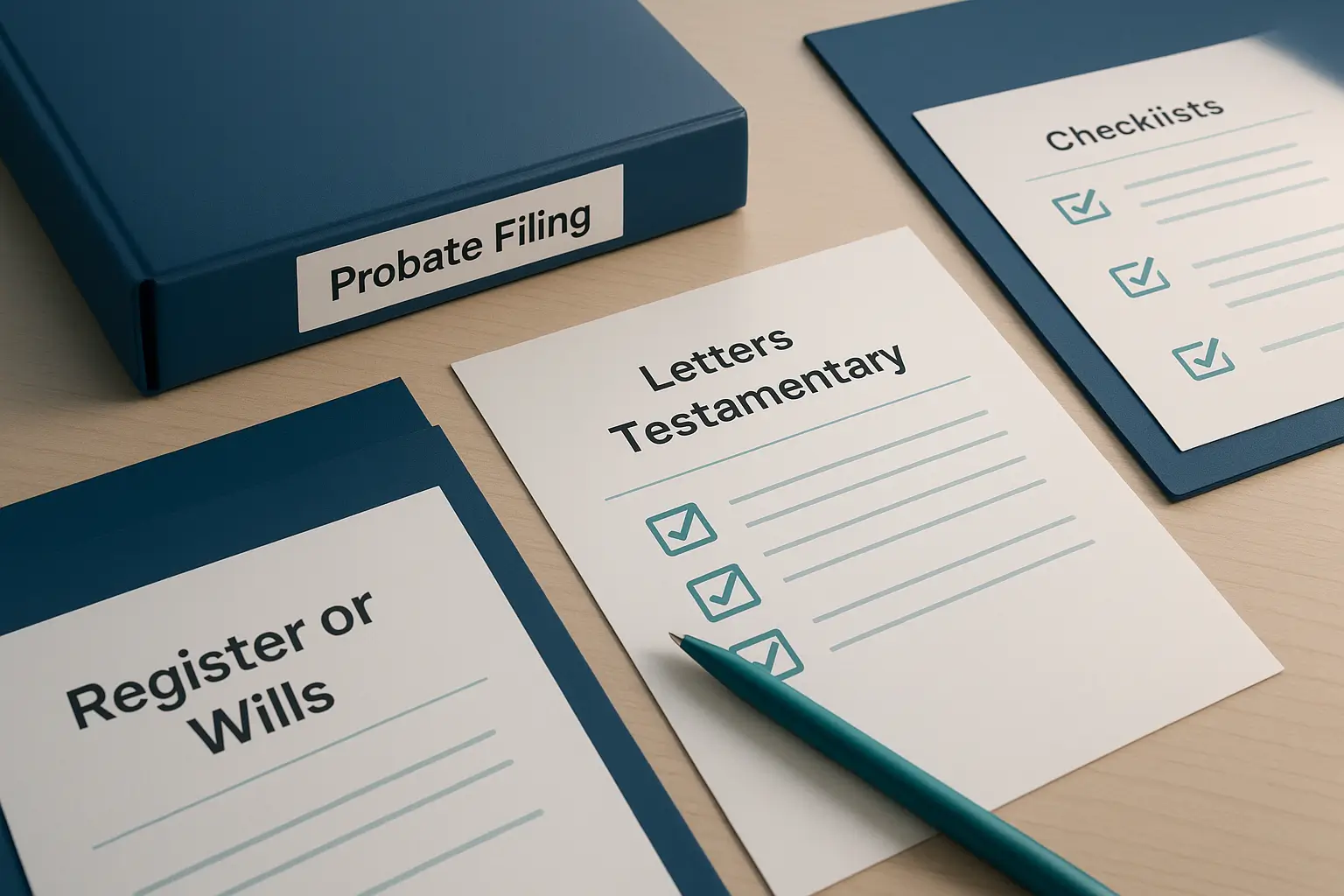
Executor Guidance
Complete probate process support from filing to final distribution. We walk you through every requirement, deadline, and decision.

Inherited Property Sales
Specialized probate real estate services including valuation, preparation, marketing, and sale coordination. Get maximum value with minimum hassle.

Estate Cleanout Coordination
Professional cleanout services for inherited properties. We handle sorting, donations, disposal, and preparing homes for sale or distribution.
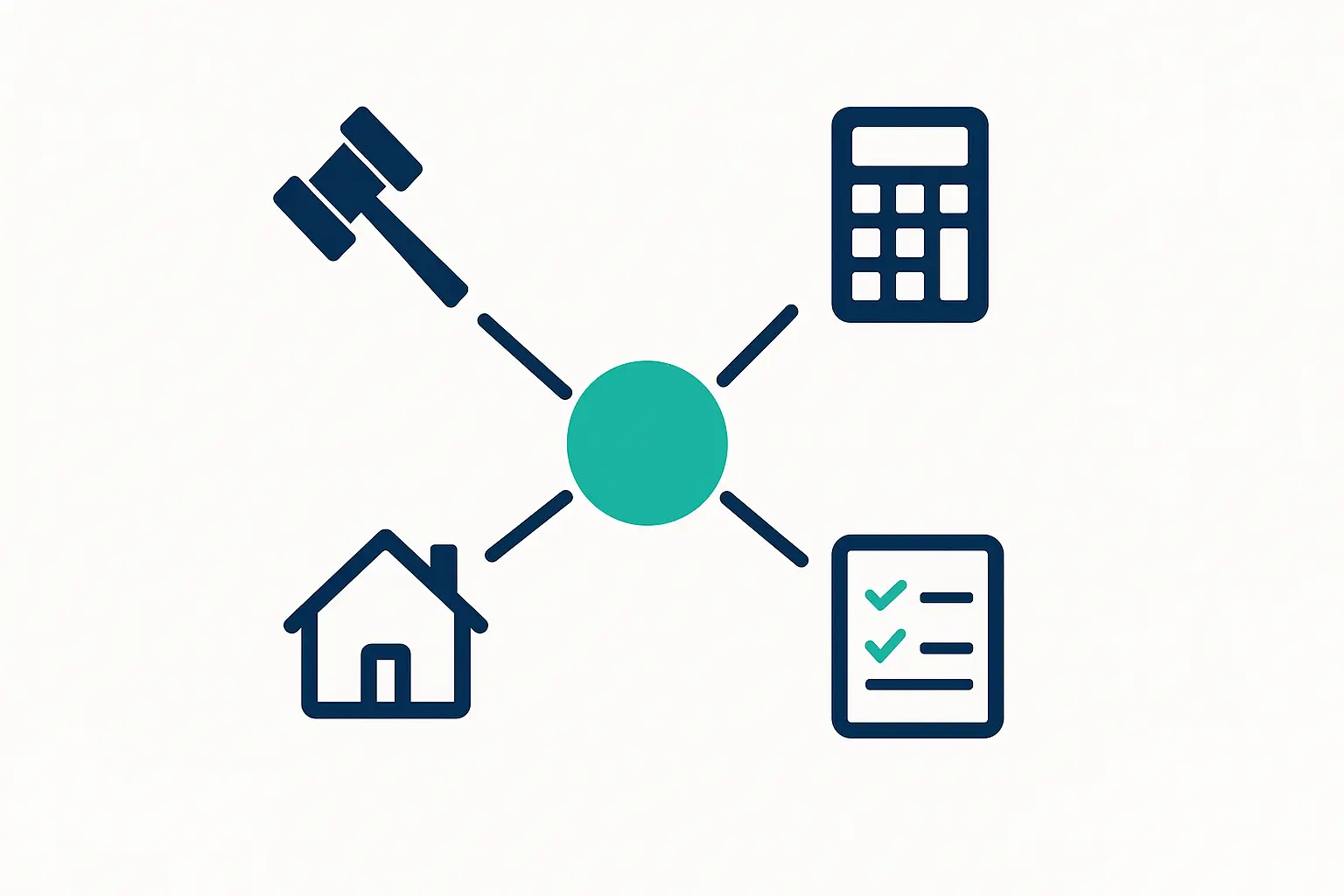
Professional Network
Access our trusted network of Pennsylvania probate attorneys, estate accountants, appraisers, and specialists. We coordinate everything.
Executor Service FAQs for Pennsylvania Probate

What are the main duties of a personal representative in Pennsylvania?
A personal representative manages every significant aspect of estate administration — from identifying assets and filing court documents, to collecting payments, paying debts, and distributing property. This role is crucial under Pennsylvania law and carries legal responsibility and deadlines.
Do I have to be a Pennsylvania resident to serve as executor?
No. Pennsylvania allows out-of-state executors, but being local simplifies property management, court filings, and vendor coordination. We help executors from any location handle these tasks efficiently.
What happens during the initial consultation for executor services?
We start with a full review of the estate's assets, will status, family circumstances, and immediate priorities. Then we create a clear action plan based on Pennsylvania probate requirements so you’re never unsure what to do next.
How do you help with Pennsylvania inheritance tax and court filings?
We guide you through Pennsylvania’s tax rules and filing deadlines (like the 9-month inheritance tax return), work with CPAs and accountants, coordinate with the Register of Wills, and help you complete all required paperwork correctly and on time.
What if the estate includes real estate or multiple properties?
As a Certified Probate Real Estate Specialist (CPRES), I manage property valuations, determine whether to sell or distribute real estate, coordinate staging, inspections and listing prep — all aligned with Pennsylvania estate administration and legal requirements.
What common mistakes do executors make and how can we help avoid them?
Executors often face issues like selling assets without legal authority, missing tax deadlines, mishandling creditor claims, or poor record-keeping. With support, you’ll receive checklists, vendor coordination, documentation guidance, and clear guidance to protect yourself and the estate’s value.
Can you coordinate vendors and professionals on my behalf?
Yes. We coordinate with trusted Pennsylvania vendors - attorneys, CPAs, appraisers, clean-out crews, contractors, and real-estate professionals - so you don’t have to vet each one yourself or manage multiple points of contact during a stressful time.
How quickly can I get help if I’ve just been named executor?
You can schedule a consultation immediately. Early involvement is key to avoiding major delays or penalties. We can assess your situation, map out required steps, and help you begin the process confidently.
What is your geographic service area for executor support?
We serve executors across Pennsylvania with special focus on Montgomery, Philadelphia, Bucks, Delaware, and Chester counties. Our local knowledge ensures you meet county-specific requirements efficiently.
Why should I work with your team instead of handling executor tasks alone?
Dealing with probate independently often means extra stress, missing details, or costly delays. Our executor service offers experienced guidance, a proven process, and professional coordination so you can focus on your family while we handle the estate responsibilities.

Joe Thomas
Certified Probate Real Estate Specialist
If you have any questions about the probate process or would like to speak with a Certified Professional Real Estate professional about your specific probate needs, please use the following form to get in touch. We can also be reached directly at (215) 452-9415.
Contact Joe Thomas
IMPORTANT NOTE:
Please be aware that the information on this page is delivered without warranty or guarantee of accuracy. It’s provided to help you learn more and formulate specific questions to discuss with your attorney and/or your Real Estate Professional and/or to help a personal representative, executor or executrix when executing their challenging responsibilities. By accessing this page, you acknowledge that it has been provided for information only and that you are hereby advised that any decisions regarding probate issues should be discussed with an attorney and/or a Real Estate Professional.